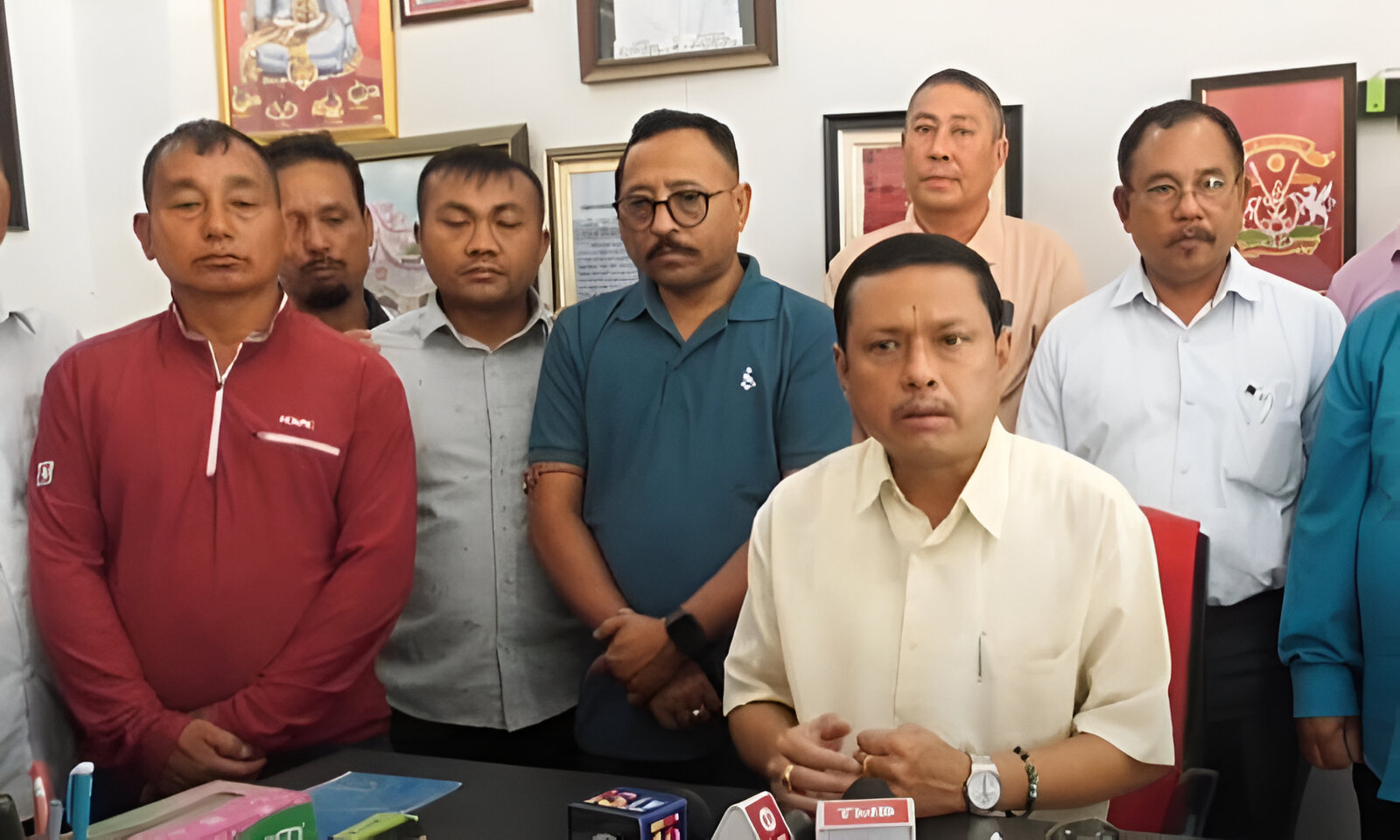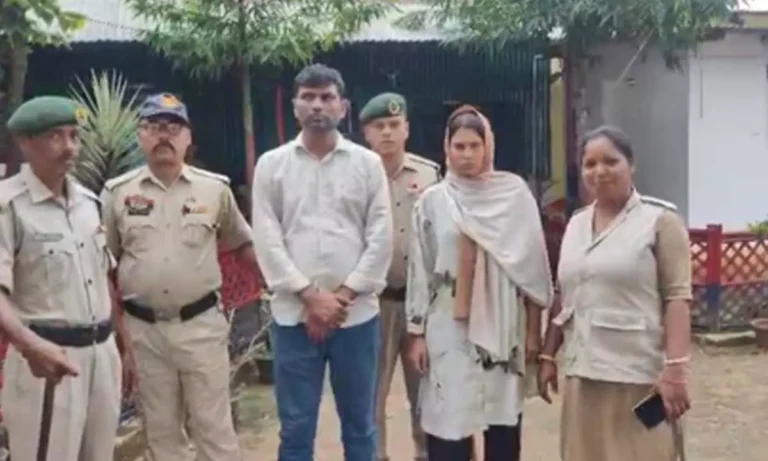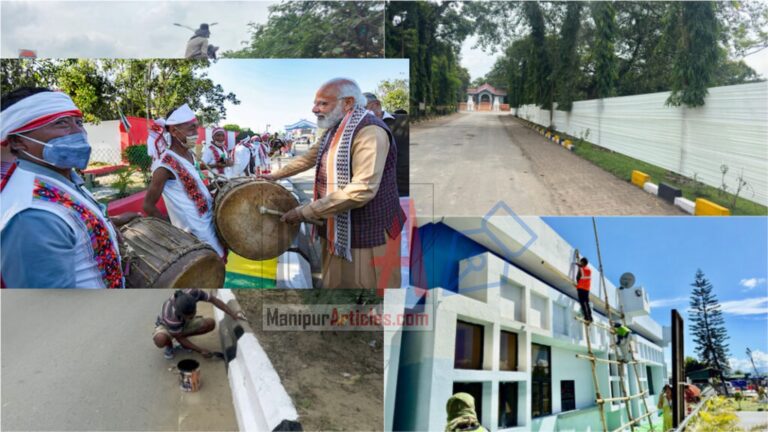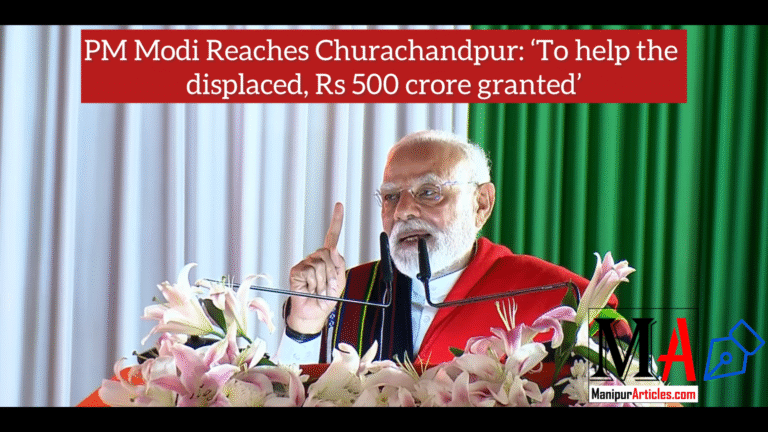Manipur’s Titular King Appeals to Centre for Meitei Pilgrims’ Movement
📰 News Summary
On April 16, 2025, Leishemba Sanajaoba, the titular king of Manipur and Rajya Sabha MP, urged the central government to intervene in facilitating the movement of Meitei pilgrims to Thangjing Hill. This appeal comes in response to threats and blockades imposed by certain groups, hindering the annual pilgrimage to the sacred site dedicated to Ibudhou Thangjing, a revered deity in Meitei culture. Sanajaoba emphasized that such obstructions violate constitutional rights and threaten cultural heritage, calling for immediate action to ensure the pilgrims’ safe passage.
🛕 Guardians of Heritage: The Meitei Pilgrimage to Thangjing Hill
1. The Sacred Ascent: Understanding the Pilgrimage
For generations, the Meitei community has undertaken an annual pilgrimage to Thangjing Hill, nestled between Bishnupur and Churachandpur districts. This journey is not merely a physical trek but a spiritual odyssey to honor Ibudhou Thangjing, the guardian deity of southern Kangleipak (Manipur). The rituals performed here are deeply embedded in the Meitei identity, symbolizing a connection to their ancestors and the divine.
2. The Roadblocks: Challenges Faced by Pilgrims
Recently, the pilgrimage has encountered significant hurdles. Reports indicate that certain groups have issued threats and established blockades, effectively preventing Meitei pilgrims from accessing Thangjing Hill. These actions have not only disrupted a longstanding religious tradition but have also heightened tensions in the region.
3. A Royal Appeal: Sanajaoba’s Call to Action
In response to these developments, Leishemba Sanajaoba has taken a stand. As both the titular king and a member of the Rajya Sabha, he has appealed to the central government to intervene. Sanajaoba argues that the obstruction of the pilgrimage infringes upon constitutional rights and poses a threat to the cultural fabric of the Meitei community. He emphasizes the need for immediate measures to ensure the pilgrims’ safety and the preservation of their traditions.NorthEast Now+2NorthEast Now+2NorthEast Now+2
4. The Cultural Significance: More Than a Journey
The pilgrimage to Thangjing Hill transcends religious practice; it is a manifestation of the Meitei people’s cultural identity. The rituals, songs, and communal gatherings associated with the pilgrimage serve as a living testament to their heritage. Disruptions to this tradition risk eroding a vital aspect of the community’s collective memory and cohesion.
5. The Broader Implications: Unity and Diversity
India’s strength lies in its diversity, with each community contributing to the nation’s rich tapestry. Ensuring the freedom to practice one’s religion and uphold cultural traditions is fundamental to this unity. The challenges faced by the Meitei pilgrims highlight the importance of safeguarding these freedoms and fostering mutual respect among different groups.
❓ FAQs
Q1: Who is Ibudhou Thangjing?
Ibudhou Thangjing is a revered deity in Meitei culture, considered the guardian of southern Kangleipak (Manipur).NorthEast Now+1Alamy+1
Q2: Why is Thangjing Hill significant?
Thangjing Hill is the sacred site where Meitei pilgrims perform rituals to honor Ibudhou Thangjing, maintaining a tradition that spans generations.
Q3: What challenges are the pilgrims facing?
Pilgrims have encountered threats and blockades from certain groups, hindering their access to Thangjing Hill and disrupting their religious practices.NorthEast Now+1NorthEast Now+1
Q4: What actions has Leishemba Sanajaoba taken?
As the titular king and a Rajya Sabha MP, Sanajaoba has appealed to the central government for intervention to ensure the pilgrims’ safe passage and uphold their constitutional rights.NorthEast Now+2NorthEast Now+2NorthEast Now+2
Q5: Why is this issue significant beyond the Meitei community?
The situation underscores the importance of protecting religious freedoms and cultural traditions, which are essential to India’s unity in diversity.




